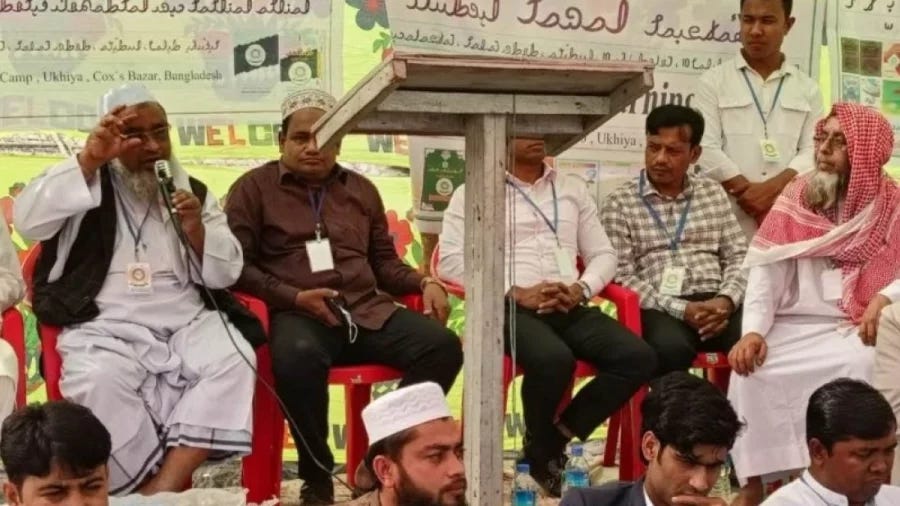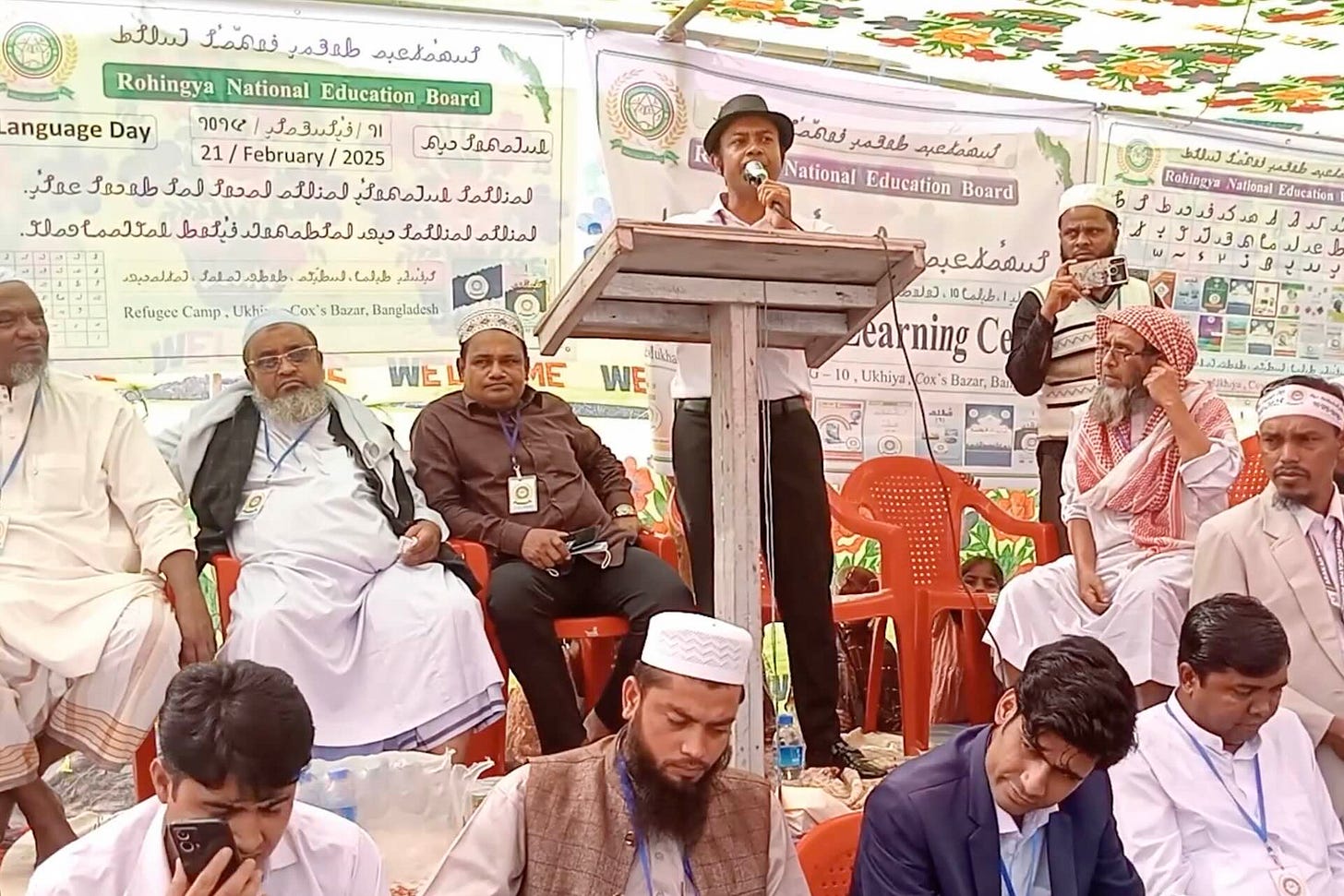How Dil Mohammed Hijacked Mother Language Day
When a Smuggler Becomes a Rohingya Leader

Five days after my exposé of Dil Mohammed, a known smuggler and informant for the Myanmar military, was published in the Dhaka Tribune, the same outlet sadly rebranded him as a "Rohingya leader" in both the headline and body of an article. The article, titled 'Rohingya leader: Grateful to Bangladesh, want to return to Arakan,' presents Dil Mohammed as a community spokesperson without acknowledging his controversial background.
This swift shift in portrayal raises questions about the article's origins. Could it have been influenced by external communications, such as a press release? Without transparency from the Dhaka Tribune, the basis for this rebranding remains uncertain.
Moreover, this portrayal is particularly striking given the context: the news piece covers a meeting commemorating International Mother Language Day - a day of profound significance in Bangladesh, honouring the martyrs of the 1952 Language Movement
This is the grotesque irony of the day:
In February 21, 1952, eight brave activists (some sources put the number higher) were killed while defending the Bengali language - a stand against cultural erasure imposed by West Pakistan’s regime.
On February 21, 2025, we see Dil Mohammed, tied to Myanmar’s junta, hijacking this significant day in the Rohingya camps. He extols the virtues of the language movement while aiding a military force that denies Rohingya identity by labelling them 'Bengali migrants' in an effort to erase their indigenous status. This same force also conscripts the Rohingya as cannon fodder against the Arakan Army - even as it orchestrates their genocide!
The heroic sacrifices of 1952 and the manipulation of current events by figures like Dil Mohammed highlights the exploitation of Rohingya struggles for political gain. This and other such events, and Dil Mohammed’s public appearance alongside other armed groups, are clearly facilitated by the Bangladesh intelligence agencies. Their goal? To boost the profiles of these shadowy figures and push a narrative that serves the state’s strategic interests.

Dil Mohammed wasn’t alone. At the same event, other polarising figures were present, including Ayub Nur, a member of the Arakan Rohingya Army (ARA) closely linked to the RSO and known for forcibly recruiting Rohingya youth in 2024 and 2025 (paywall).
Ayub's speech fits in very nicely with Bangladesh's repatriation objectives by promoting a narrative that encourages the Rohingya community to prepare for return to Myanmar.
Furthermore, his denunciation of the “Mogh” aligns with Bangladesh's strategic interests. The AA's growing influence in Rakhine State poses challenges to regional stability and complicates repatriation efforts (as far as Dhaka is concerned). Bangladesh, hosting over a million Rohingya refugees, is keen on facilitating their return to Myanmar. Collaborating with Myanmar's military against the AA is probably viewed by Bangladesh as a more pragmatic approach to stabilise the region and create conditions conducive to repatriation.
Bangladesh authorities therefore play an instrumental role in providing a platform for figures like Dil Mohammed and Ayub Nur to present themselves as respectable leaders of the Rohingya community. Of course, everyone knows these individuals are far from the celebrated spokespeople they are portrayed as. Rather, they are members of armed groups and subordinates to Myanmar's brutal junta. By offering them these public stages, the powers that be seek to enhance their legitimacy and embed their messaging into the broader narrative of Rohingya suffering and repatriation.
Rohingya Wisdom despite the Farce
It is abundantly clear that when a military informant and alleged drug smuggler hijacks Mother Language Day, the very notion of leadership is perverted. The Rohingya are not so naive as to be taken in by these theatrics. As one post on Facebook, with the Dhaka Tribune cover image, bluntly put it:
"When a clown moves into a palace, he doesn't become a king. The palace becomes a circus."
Another voice added, linking the Dhaka Tribune story:
"The media should obtain ethics. It’s absolutely disgusting."
Arakan Express News, an online news site founded by the NUG’s Aung Kyaw Moe, called Dil Mohammed out to be a stooge of the military. In their news item about the Language Day event, they wrote:
Rohingya political organisations must no longer allow these armed, junta-loyal figures to claim they represent the community. It is time for a clear and decisive policy—backed by concrete actions—to challenge and dismantle the influence of Dil Mohammed and his network.
Bangladesh authorities should take heed. The Rohingya, wise to these manipulations, deserve far better than a circus masquerading as a movement.
